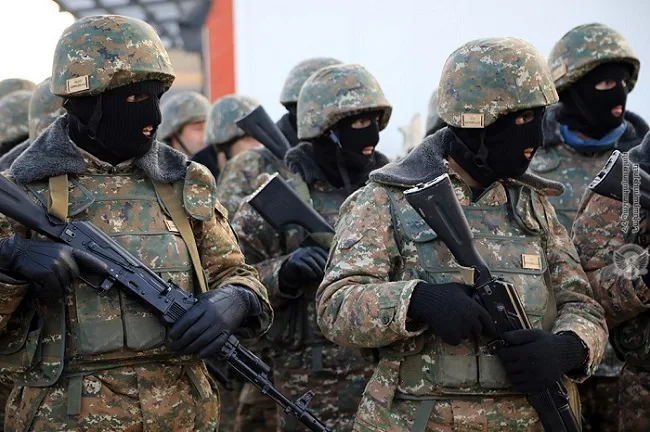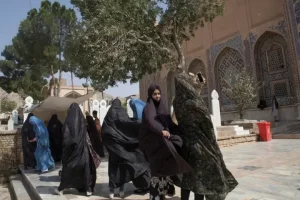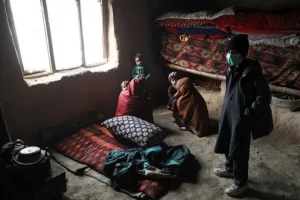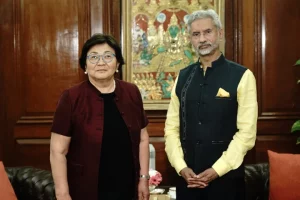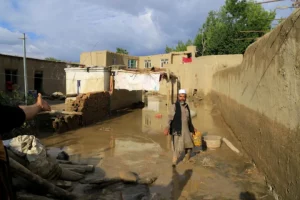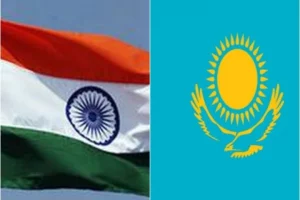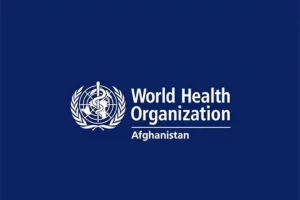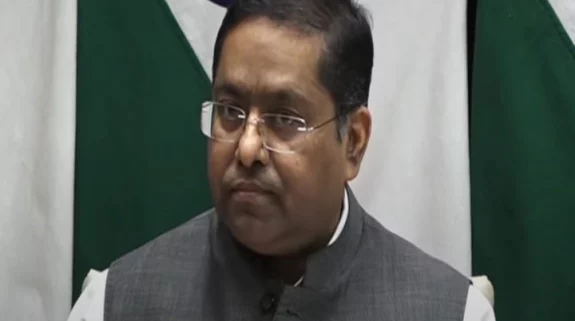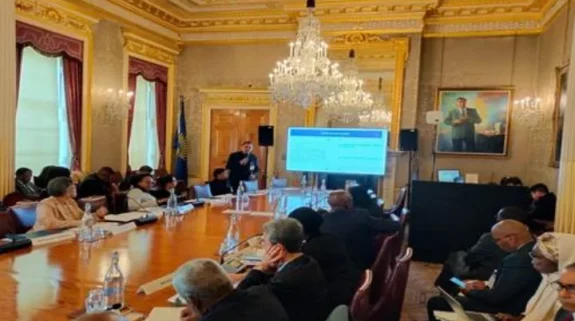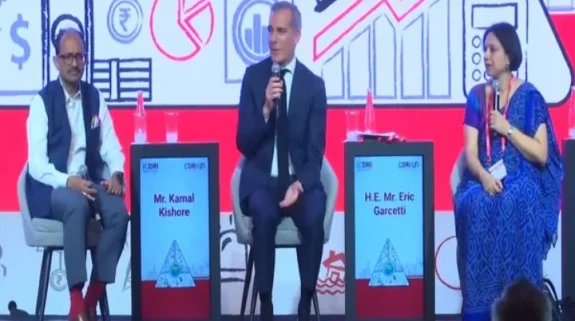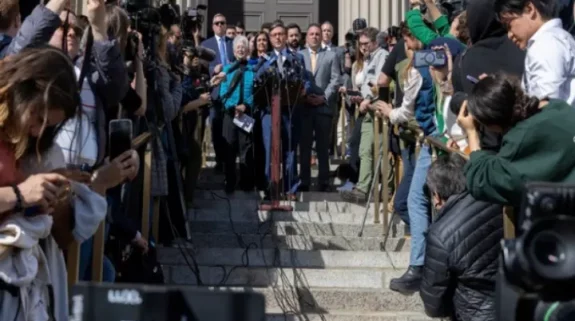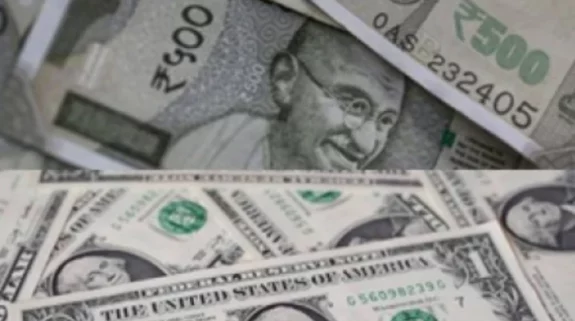Revealing shocking details of events which shook entire Central Asia over the past one week, Kazakhstan's President Kassym-Zhomart Tokayev said on Monday that there were "congregations of militants" around his residence as "a real terrorist war" was unleashed against his country using a variety of methods.
Armed militants, who Tokayev said were waiting in the wings and rushed to Almaty from three directions "like a huge flock of hyenas" used the discontent of the population in a number of regions due to the rise in prices for automobile gas and covered themselves with rioters who served as human shields for them.
"I speak with confidence about the direct participation of terrorists, including foreign militants, in the aggression against Kazakhstan. It was no coincidence that the bandits attacked morgues at night and took away the bodies of their dead accomplices," Tokayev told members of the Russia-led Collective Security Treaty Organisation (CSTO) who held a virtual extraordinary session of the CSTO Collective Security Council on Monday.
The meeting was attended by Russian President Vladimir Putin, Prime Minister of Armenia Nikol Pashinyan, President of Belarus Alexander Lukashenko, Prime Minister of Kyrgyzstan Akylbek Zhaparov, President of Tajikistan Emomali Rahmon and CSTO Secretary General Stanislav Zas.
"They also took the bodies of militants directly from the battlefield. This is the practice of international terrorists of known origin: this is how they cover their tracks. There is a plan to form a zone of chaos on our territory with the subsequent seizure of power," he added.

Russian President Vladimir Putin at the extraordinary session of the CSTO Collective Security Council on Monday (Image courtesy: Office of the President of Russia)
The aggression, which spread in eleven regions, was directed mainly against Almaty – the largest city of Kazakhstan and financial centre of the country, where the most important transport and communication hubs are located.
"The fall of this city would open the way for the capture of the entire densely populated south, and then the entire country. The terrorists hoped to draw off the forces of law and order in order to then strike at the capital of Kazakhstan," Tokayev told the heads of the states from the region.
As Kazakhstan turned to the CSTO with a request to provide assistance and the CSTO peacekeepers arrived on Thursday to secure important state and military facilities, a decisive counter-terrorist operation was launched to eliminate the "religious radicals, criminals, notorious bandits, looters and petty hooligans" who were attempting a coup d'état.
"It turned out to be extremely timely. Upon learning of the arrival of three military transport aircraft in the capital, the militants abandoned their plans to seize the presidential residence. This gave us the opportunity to send additional forces to Alma-Ata and recapture the city from terrorists," revealed Tokayev.
Russian soldiers, who are part of the CSTO peacekeeping contingent, protect the Almaty airport (Video courtesy: Russian Ministry of Defence)
Within the next five days, Russia's IL-76 and AN-124 aircrafts took about 2030 CSTO peacekeepers and around 250 units of equipment in more than 110 flights to Kazakhstan.
The CSTO contingents are deployed in the cities of Nur-Sultan, Almaty and the Almaty region, as well as in the city of Baikonur.
The contingent, assured Putin once again on Monday, is in Kazakhstan for "a limited time period" and will be withdrawn after fulfilling the required functions.
The Russian President said that the experience of recent events in Kazakhstan confirms that certain forces do not shy away from using cyberspace and social networks in recruiting extremists and terrorists, creating "sleeping cells" of militants.
Putin asserted that the threat to Kazakhstan's statehood is not caused by spontaneous protest actions over fuel prices, but by the fact that destructive internal and external forces took advantage of the situation.
"The elements of power and information support of protests inherent in 'Maidan' technologies were actively used. Well-organised and well-controlled groups of militants were used, of which President Tokayev just said, including those who had passed – apparently, had passed – training in terrorist camps abroad," said Putin while drawing similarities to the 2014 colour revolution that had rocked Ukraine.
Vowing a joint response to restore order in Kazakhstan, all CSTO members made it clear that they will intensify efforts to suppress any forms of violent extremism in the region.
"An analysis of the events in Kazakhstan shows the presence, of course, of an external factor. Their script is recognizable, as the President of Kazakhstan has just said. There is no need to go far for analogies: Yugoslavia, Iraq, Libya, Syria, Ukraine, Afghanistan, not so long ago Belarus experienced a similar combined onslaught," said Belarus President Alexander Grigorievich Lukashenko in his address.
The grouping agreed that a lot of international terrorists have accumulated on the borders of Central Asia and there could be a repetition of events if lessons are not learnt from from what is happening in Kazakhstan right now.
Emomali Sharipovich Rahmon, President of Tajikistan – a frontline state sharing a long 1344 km border with Afghanistan – said that his country has "not stopped fighting" the destructive activities of terrorists, extremists, Islamic radicals and various criminal elements over the past 30 years.
Rahmon said that he has repeatedly drawn attention to the presence of sleeping cells of international terrorism, extremism and religious radicalism in the Central Asian countries.
"In this regard, the aggressive activity of the Salafiya movement and Wahhabism should be especially noted. The followers of these trends, as you know, constitute the backbone of the Islamic State. We in Tajikistan are doing our best to fight the agitation and subversive work of emissaries of banned organisations with all our strength," remarked Rahmon.
Also Read: Thousands of jihadists involved in Kazakhstan unrest, confirms Russia






